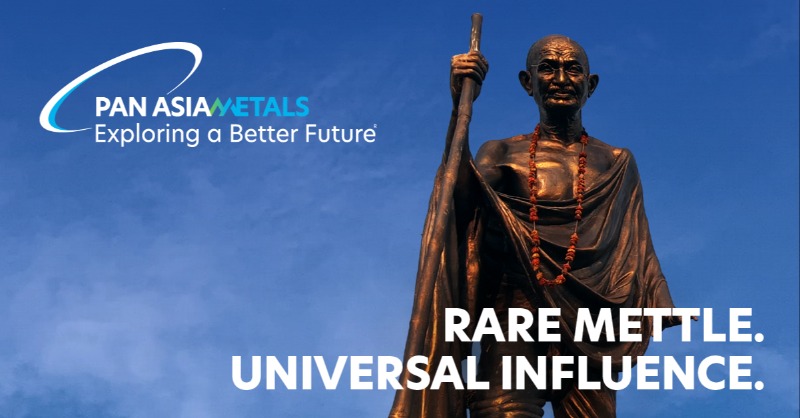It takes courage to effect real change in the world. PAM aligns with a brave new future, by exploring rare metal. With rare mettle. And by adopting the best from those who lead change.
MAHATMA GANDHI – for his universal influence.
Born in 1869, Mahatma believed in Jainism, a branch of Hinduism whose principles include nonviolence to all living things. A belief that stayed with ‘The Great Soul’ for life.
After graduating from Law in London, he moved to South Africa in 1893, to represent an Indian merchant. Racism was rife. In a courtroom he was told to remove his turban.
Days later, he was thrown out of a ‘first-class’ train compartment.
But Gandhi never let anger define him. Instead, he developed a deep intolerance for injustice, founding the Natal Indian Congress, and exposing the world to the injustices suffered by Indians and others.
In 1906, his legendary technique of nonviolent resistance was born: satyagraha (“devotion to truth”). By the time Mahatma returned to India in 1915, satyagraha was a powerful tool in the fight for social justice. He soon became leader of The Indian National Congress, leading the 1830 Salt March as a peaceful protest against a British tax on salt. And when the final struggle for Indian independence began in 1942, he demanded a British withdrawal.
For the next 5 years, Ghandi struggled to help Muslim, Hindu, and British leaders negotiate Indian independence. But he was unable to block the subcontinent being divided into a Hindu India and a Muslim Pakistan.
Once India became independent in 1947, The Great Soul’s efforts to stop the ensuing Muslim-Hindu riots led to his assassination in 1948. While his message of non-violence wasn’t received by all, his life’s achievements resounded throughout the world.
Written for Pan Asia Metals by Josh Bryer




